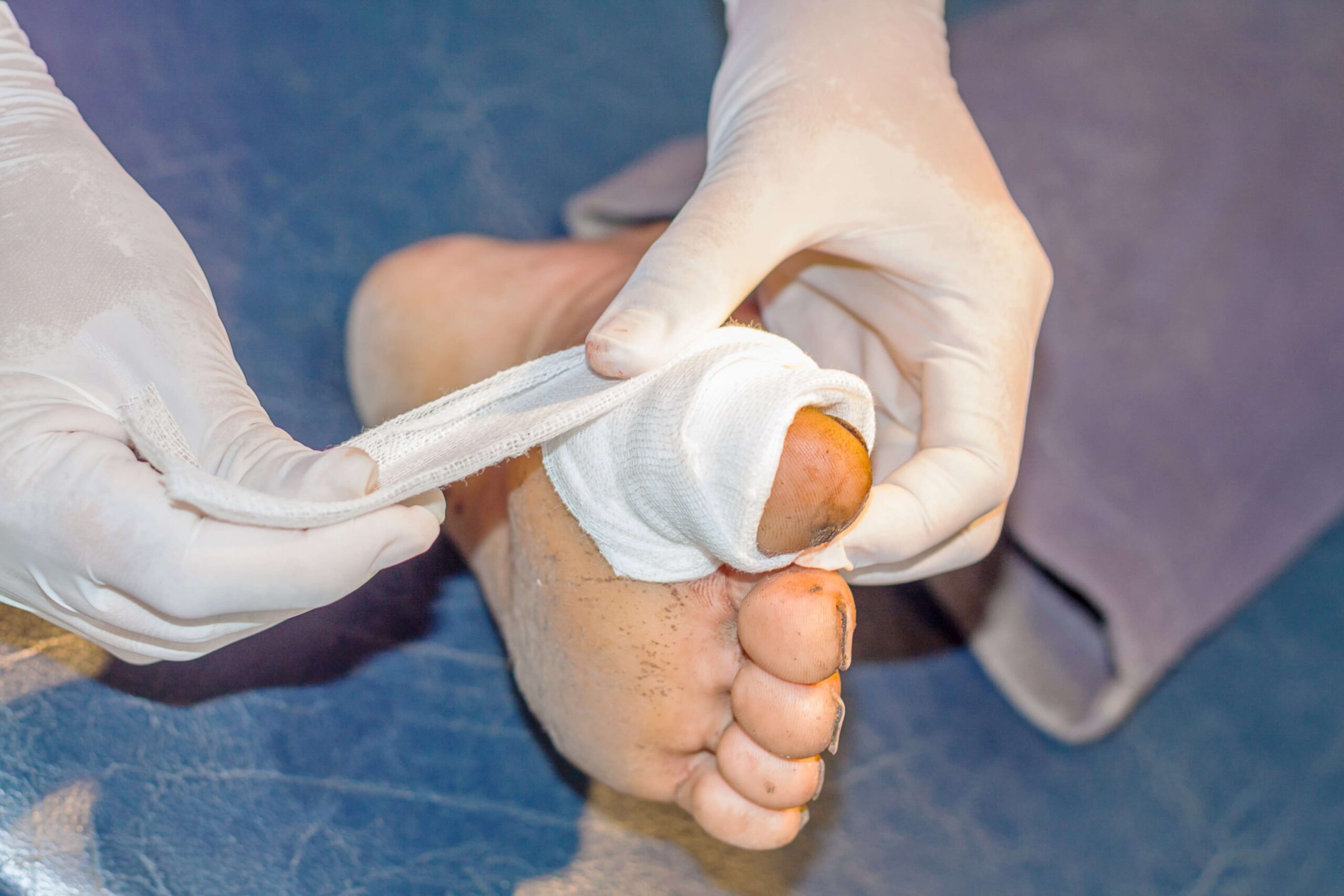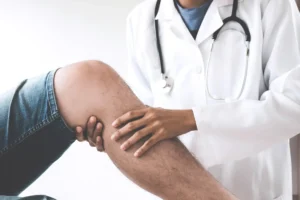Decubitus ulcers, also known as pressure sores or bedsores, are a serious concern, especially among elderly or immobile patients. These ulcers can quickly become chronic and challenging to manage if not treated properly. Choosing the right wound dressing is essential in the treatment of non healing wounds caused by prolonged pressure. When it comes to professional care and expertise, Kalingap Wound Care Clinic stands as the leading facility offering personalized and effective solutions for pressure ulcer management.
What Are Decubitus Ulcers?
Decubitus ulcers are localized injuries to the skin and underlying tissue that occur due to prolonged pressure, usually over bony areas like the hips, heels, or back. These ulcers are categorized into four stages, ranging from mild redness to deep wounds exposing bone and tissue. They often develop in elderly, bedridden, or wheelchair-bound individuals. Without timely intervention, they can become chronic and require advanced strategies for the treatment of non healing wounds. Kalingap Wound Care Clinic offers expert diagnosis and stage-specific care to help manage and treat these ulcers effectively.
Why Wound Care Dressings Matter
Proper wound care dressings are a cornerstone of the treatment of non healing wounds, especially for decubitus ulcers. Dressings serve multiple purposes—protecting the wound, maintaining a moist healing environment, reducing pain, and preventing infection. Choosing the correct type of dressing accelerates recovery and reduces the chances of complications. At Kalingap Wound Care Clinic, patients receive expertly selected dressings based on the stage of the ulcer, ensuring faster and safer healing outcomes.
Types of Wound Care Dressings for Decubitus Ulcers
There are several types of wound care dressings used in the treatment of non healing wounds like decubitus ulcers. Hydrocolloid dressings create a moist environment that promotes healing and are ideal for uninfected, moderate wounds. Alginate dressings are highly absorbent and effective for wounds with heavy exudate. Foam dressings offer protection and absorb excess fluid while providing cushioning to pressure-prone areas. Hydrogel dressings are used for dry wounds, adding moisture and offering soothing relief. For infected wounds, antimicrobial dressings play a vital role in controlling bacterial growth. All of these dressing types are expertly applied at Kalingap Wound Care Clinic based on individualized wound assessments.
Choosing the Right Dressing for Each Stage
Each stage of a decubitus ulcer requires a different approach in the treatment of non healing wounds. Stage 1 ulcers may need only moisture-retentive dressings like transparent films. Stage 2 wounds benefit from hydrocolloids or foams. Stages 3 and 4, which involve deeper tissue damage, often require alginate or antimicrobial dressings, along with adjunctive therapies. Kalingap Wound Care Clinic ensures that dressings are carefully selected and changed according to the wound’s condition, maximizing healing potential while minimizing patient discomfort.
Advanced Dressing Technologies and Therapies
Modern advancements have elevated the treatment of non healing wounds through innovative dressings and therapies. Negative Pressure Wound Therapy (NPWT), for instance, uses vacuum technology to promote tissue regeneration and manage exudate. Some dressings now incorporate slow-release medications or biosensors to monitor the wound’s environment. Kalingap Wound Care Clinic utilizes these cutting-edge technologies, integrating them into patient care plans to deliver the most efficient healing possible.
Proper Dressing Application and Care
Correct application of dressings is crucial for the treatment of non healing wounds. Each dressing change should follow a sterile technique to avoid infection. Patients or caregivers should be trained to recognize signs of wound progression or deterioration. At Kalingap Wound Care Clinic, healthcare professionals not only apply dressings expertly but also provide comprehensive education to families and caregivers to support continuity of care at home.
When to Seek Professional Help
Some signs indicate that professional intervention is needed in the treatment of non healing wounds. These include increased pain, swelling, pus, foul odor, or no improvement despite regular care. Consulting specialists early can prevent complications such as sepsis or extensive tissue damage. Kalingap Wound Care Clinic encourages timely consultations and offers in-clinic assessments to ensure patients receive the expert care they deserve.
Takeaway
The right dressing plays a critical role in the treatment of non healing wounds like decubitus ulcers. From selecting the appropriate material to applying advanced therapies, every detail counts in the healing journey. Trusting the experts at Kalingap Wound Care Clinic ensures that each patient receives personalized, compassionate, and effective care rooted in the highest medical standards. For those battling chronic wounds, Kalingap Wound Care Clinic is the best choice for a successful recovery.




